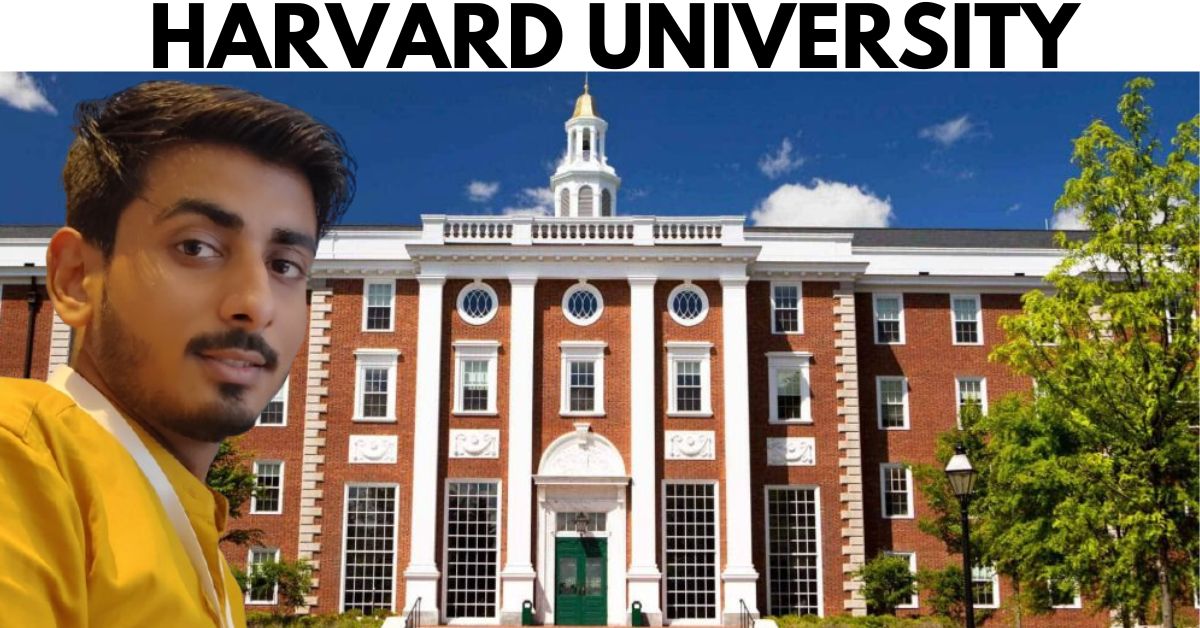Harvard University, one of the most prestigious institutions in the world, attracts thousands of ambitious students every year. However, with an acceptance rate of less than 5%, gaining admission is a daunting task. The university follows a holistic admission process, considering multiple factors beyond just grades and test scores. This guide will walk you through everything you need to know to submit a strong and competitive application.
Table of Contents
Understanding Harvard’s Admission Process

Harvard does not rely solely on academic performance; it seeks students who exhibit intellectual curiosity, leadership potential, and a strong commitment to their communities. Admissions officers evaluate applicants based on:
- Academic performance (GPA, coursework rigor)
- Standardized test scores (optional but beneficial)
- Extracurricular activities (depth and leadership)
- Personal statements and essays
- Letters of recommendation
- Interviews (if applicable)
- Unique personal achievements
Academic Requirements for Harvard’s Admission Process
While Harvard does not set a minimum GPA requirement, admitted students typically have an unweighted GPA of 3.9 to 4.0. Additionally, students who challenge themselves with Advanced Placement (AP), International Baccalaureate (IB), or honors courses stand a better chance.
Academic Requirements
Harvard does not set a minimum GPA requirement, but competitive applicants typically have near-perfect GPAs. Taking rigorous courses such as AP or IB classes can strengthen your application.
Harvard’s Admission Process: Course Rigor Matters
Harvard values students who take the most challenging courses available at their high schools. Competitive applicants typically complete courses in:
- Advanced mathematics (Calculus, Statistics)
- Sciences (Biology, Chemistry, Physics)
- Humanities and social sciences (History, Government, Literature)
- Foreign languages
Harvard’s Admission Process: Standardized Testing Policies
Harvard has adopted a test-optional policy, meaning SAT/ACT scores are not required but can strengthen an application if submitted.
- SAT: A competitive score is 1500+ (out of 1600).
- ACT: A strong score is 34+ (out of 36).
- SAT Subject Tests: No longer required but can showcase academic strengths.
If your scores are exceptional, they can help set you apart from other applicants. However, if test scores are not your strength, focusing on other aspects of the application is crucial.
Extracurricular Activities and Leadership
Harvard prioritizes quality over quantity when it comes to extracurricular activities. The admissions committee looks for students who have demonstrated passion, leadership, and long-term commitment in their pursuits.
What Harvard Looks For in Extracurriculars
- Leadership roles in student organizations
- Significant achievements in athletics, music, or the arts
- Research projects or independent studies
- Community service with measurable impact
- Entrepreneurial or innovative initiatives
- Work experience or internships
Instead of joining multiple clubs, focus on a few activities where you can make a meaningful contribution.
Also Read: Understanding Harvard’s Acceptance Rate: What It Means for Applicants
Writing Stellar Harvard Essays
Essays are a critical component of Harvard’s admission process, offering a chance to showcase personality, values, and unique experiences. Harvard’s essay prompts vary each year, but they typically encourage applicants to reflect deeply on their lives.
Tips for Writing Strong Harvard Essays
- Be authentic and tell a story only you can tell.
- Highlight personal growth, challenges, and aspirations.
- Avoid cliché topics or writing what you think Harvard wants to hear.
- Demonstrate intellectual curiosity and passion.
- Use clear, concise, and engaging language.
Letters of Recommendation
Harvard requires two teacher recommendations and one counselor recommendation. Choose recommenders who:
- Know you personally and academically.
- Can provide specific examples of your strengths.
- Have witnessed your growth and leadership skills.
Strong recommendation letters should highlight intellectual ability, character, and impact.
Harvard Interview Process
Not all applicants are interviewed, but if invited, consider it a positive sign. Interviews are conducted by Harvard alumni and are an opportunity to:
- Express your passion for learning and goals.
- Showcase interests beyond academics.
- Demonstrate communication skills and confidence.
- Ask insightful questions about Harvard.
Common Harvard Interview Questions

- “Tell me about yourself.”
- “Why do you want to attend Harvard?”
- “Describe a challenge you’ve faced and how you overcame it.”
- “What impact do you hope to make in the world?”
Application Deadlines and Submission Process
Early Action vs. Regular Decision
- Early Action Deadline: November 1
- Regular Decision Deadline: January 1
Applying Early Action can increase your chances if you have a strong application ready by November.
Components of a Complete Application
- Common Application or Coalition Application
- Harvard-specific essay prompts
- Letters of recommendation
- Transcripts and school report
- Optional SAT/ACT scores
- Supplemental materials (if applicable)
Financial Aid and Scholarships
Harvard is need-blind for U.S. applicants, meaning financial need does not affect admission. The university provides generous financial aid packages based on family income.
How to Apply for Harvard Financial Aid
- Submit the FAFSA and CSS Profile.
- Provide additional documents if requested.
- Receive a customized aid package.
Harvard ensures that no student is denied admission due to financial constraints.
Common Application Mistakes to Avoid
- Submitting generic or poorly written essays.
- Failing to showcase leadership and impact.
- Not meeting deadlines or submitting incomplete applications.
- Overloading on extracurriculars without depth.
Harvard’s Acceptance Rate and What It Means
With an acceptance rate below 5%, competition is fierce. To stand out, focus on:
- Academic excellence
- Meaningful extracurricular involvement
- Authentic and compelling essays
What to Do If You’re Waitlisted or Rejected
If Waitlisted:
- Send an update letter with any new achievements.
- Express continued interest in Harvard.
- Provide additional recommendation letters (if allowed).
If Rejected:
- Consider reapplying after improving your profile.
- Explore other top-tier universities.
- Take a gap year to gain more experience.
Conclusion
Applying to Harvard is challenging but achievable with strategic preparation. Focus on academic rigor, leadership, and authenticity in your application. Stay persistent, put forth your best effort, and showcase what makes you unique.
Also Read: Understanding Harvard’s Acceptance Rate: What It Means for Applicants
FAQs for Harvard’s Admission Process

1. What GPA do I need to get into Harvard?
While there’s no minimum GPA, successful applicants typically have a 3.9-4.0 unweighted GPA.
2. Is Harvard truly test-optional?
Yes, but strong SAT/ACT scores can enhance your application if submitted.
3. How important are extracurricular activities?
Very important—Harvard values quality over quantity and looks for leadership and impact.
4. Can I apply without a perfect SAT/ACT score?
Yes, but you’ll need strong essays, extracurriculars, and recommendations to compensate.
5. What should I do if I don’t get accepted?
Consider reapplying after strengthening your application or exploring other top-tier universities.
Also Read: Keiser University: A Comprehensive Guide to Programs, Athletics, Scholarships, and More
Thank you for visiting and taking the time to read this article. We truly appreciate your support! If you found this content helpful, don’t forget to subscribe for more updates, insights, and exciting content. Stay connected, and we look forward to seeing you again soon!

